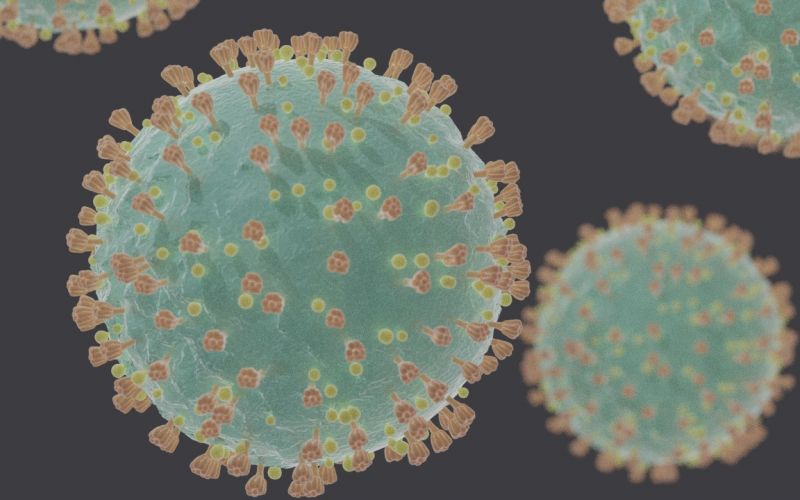
A new study shows that immunocompromised people may require repeat vaccinations to protect them against infections such as COVID.
Vaccinations offer some protection to immunocompromised people, but our study shows that only repeated vaccinations – often four or more – offer the necessary protection.
Kimia Kamelian
Vaccinations alone may not be enough to protect people with compromised immune systems from infection, even if the vaccine has generated the production of antibodies, according to new research from the University of Cambridge led by a Gates Cambridge Scholar.
The findings, published today in Science Advances, suggest that such individuals will need regular vaccine boosters to protect them and reduce the risk of infections that could be severe and also lead to new ‘variants of concern’ emerging.
Almost 16 million people worldwide are estimated to have died from Covid-19 during 2020 and 2021, though nearly 20 million deaths are thought to have been prevented as a result of the rapid roll-out of vaccines against SARS-CoV-2, the virus that caused the pandemic.
During the pandemic, researchers discovered that immunocompromised individuals had difficulty clearing the virus, even when vaccinated. These are people whose immune systems are not functioning correctly, either as a direct result of disease or because they are on medication to dampen down their immune systems, for example, to prevent organ transplant rejection. This meant that their infections lasted longer, giving the virus more opportunities to mutate.
Research from early in the pandemic showed that chronic infections can give rise to variants of concern that can then cause new waves of infection in the wider population.
When an individual is vaccinated, their immune systems produce antibodies that recognise and launch an attack on the virus. Such a process is known as seroconversion. Additional ‘booster’ vaccinations increase seroconversion and hence the likelihood of clearing infection.
However, although most immunocompromised individuals will have received three or more doses of the Covid-19 vaccine, they still account for more than a fifth of hospitalisations, admissions to intensive care units and overall deaths associated with the disease.
Research analysis
To see why this is the case, scientists at the Cambridge Institute of Therapeutic Immunology and Infectious Disease (CITIID) at the University of Cambridge examined immunocompromised individuals who had been vaccinated against Covid-19. These patients, recruited from Cambridge University Hospitals NHS Foundation Trust, were living with vasculitis, a group of disorders that cause inflammation of blood vessels. Data from this group was compared against individuals who were not immunocompromised.
Treatments for vasculitis rely on immunosuppressant medicines. These include drugs such as rituximab, which depletes the number of B-cells in the body – but B-cells are the immune cells responsible for producing antibodies. As such, these individuals are a severely at-risk population.
When the researchers analysed bloods samples from the vasculitis patients, they found that, even though vaccination induced seroconversion, this in itself was not always sufficient to neutralise the virus. Every immunocompromised individual required at least three doses of the vaccine to protect them across a range of variants up to and include Omicron (the variant that appeared towards the end of 2021 and caused a new wave of infections). In some cases, even four vaccinations were not sufficient to adequately protect them.
Kimia Kamelian [2022], a Gates Cambridge Scholar at CITIID and St Edmund’s College, Cambridge, said: “We know that immunocompromised individuals are particularly vulnerable to diseases such as Covid-19 because their immune systems struggle to clear infections. Vaccinations offer some protection, but our study shows that only repeated vaccinations – often four or more – offer the necessary protection.”
Professor Ravi Gupta, also from CITIID and a Fellow at Homerton College, Cambridge, added: “This, of course, has implications for the individual, who is more likely to have prolonged infection and a much greater risk of severe infection, but it also gives the virus multiple opportunities to mutate.
“We know from our previous work that at least some of the variants of concern probably emerged during chronic infections. That’s why these individuals must be given priority for updated vaccines against new variants.”
The research was funded by Wellcome, Gates Cambridge, Addenbrooke’s Charitable Trust and Vasculitis UK, with additional support by the National Institute for Health and Care Research Cambridge Biomedical Research Centre.
*Reference: Kamelian, K et al. Humoral responses to SARS-CoV-2 vaccine in vasculitis-related immune suppression. Sci Adv; 12 Feb 2025; DOI: 10.1126/sciadv.adq3342
**Picture credit: Felipe Esquivel Reed/Wikimedia Commons, CC BY-SA












